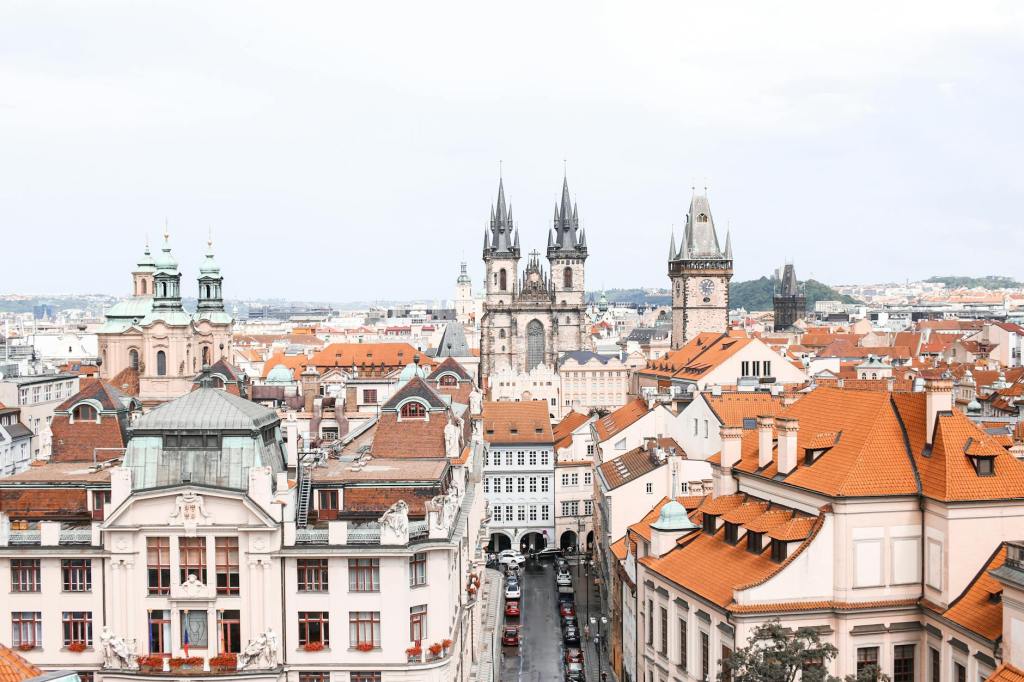
The tenth Scientiae conference will take place in Prague, on 7–10 June 2023. The conference will be in person, but we anticipate a hybrid component to be developed and detailed according to the progress of the pandemic.
As always, the programme is bringing together the best of many fields of scholarship, including great plenary events, roundtables, and a cluster ofpapers on the Rudolphine legacy of our hosting city. The keynote lectures will be delivered by Alexandra Walsham (Cambridge) and Bernd Roling (Berlin).
The organizing committee consists of Gábor Almási (Budapest), Barbara Bienias (Warsaw), Leonie Hannan (Belfast), Iva Lelkova (Prague), Tomáš Nejeschleba (Olomouc), and Ovanes Akopyan (Innsbruck). The organization is led by Stefano Gulizia (Milan) and Vladimír Urbánek (Prague).

Event Registration | Published 24/03/2023, now closed
Original post: https://scientiaeacademic.com/scientiae-prague-2023-register-now-ffbd9c743a24
As we continue our preparations for the Scientiae meeting in Prague in June this year, we would like to invite you to register for the conference, via this link.
The conference will run from approximately 1:00 PM on Wednesday June 7 to around 4:00 PM on Saturday June 10 and takes place in the facilities of the Czech Association of Scientific and Technical Societies. This is very close to the Charles Bridge, at the heart of the historical Old Town. The exact address is Novotného lávka 200/5, 110 00 Praha 1, Czech Republic.
This year the registration fee is 140 EUR, including the conference dinner. Please be aware that the deadline for registration is 20 April 2023.
You can register for the conference via Eventbrite: https://www.eventbrite.com/e/scientiae-2023-tickets-598369337797.
Thank you for taking part in our lively community. See you in Prague!
Questions or comments? Contact the conference committee via: conference@scientiaeacademic.com.
Call For Papers | Updated 09/01/2023, now closed
The Call for Papers has been circulated in October 2022; An updated Call for Papers was published on 9 January 2023.
Submit your proposal for the Prague conference before 15 january 2023.
The 2023 annual meeting of Scientiae will take place in Prague, 7–10 June, with support of the Institute of Philosophy at the Czech Academy of Sciences and Faculty of Arts, Charles University. In addition to our keynote speakers, Alexandra Walsham (Cambridge) and Bernd Roling (Berlin), we have a number of prospective and confirmed participants, including, among others, Aviva Rothman, Monica Azzolini, Patrick Boner, Sara Miglietti, Jaroslaw Wlodarczyk, Richard Kremer, Steven Vanden Broecke, Adam Mosley, Matteo Valleriani, Yelda Nasifoglu, Jonathan Regier, Mattia Mantovani, Paul Richard Blum, Dana Jalobeanu, Valentina Lepri, Petr Pavlas, Svorad Zavarsky, Leigh Penman, and indeed, many others. This richness of attendees speaks both to the vibrancy of our core community and of the Central European lands where we are hosted this year.
We are delighted to accept proposals for the tenth Scientiae conference and we are keenly aware of the importance of meeting in person; by design, our forum has always been warm and inclusive, as well as a suitable arena for collaboration between senior and early career historians. In addition to regathering after the pandemic, and inviting new contributions, the conference in Prague maintains as one of its primary goal that of bridging the gap between studies of material culture and history of ideas. Historians of science, philosophers, literary scholars, art historians, and many other seemingly distant experts are encouraged to reflect together on the complexities of the early modern period.
While the brand of Scientiae has grown considerably, demonstrating its ongoing relevance, every past attendee knows that ‘interdisciplinary’ is not just a keyword for us, but a productive look at epistemic practices in the transformation of learning. Likewise, our methodology does not merely reflect a variety or another of history of knowledge, but also considers breakdowns or blind spots, image-making, the supernatural, and it is highly conducive to a global perspective.
The congress is open to all topics related to the 1400–1800 period. Some papers will be strongly theoretical, others deeply archival, but in any case researchers who meet at Scientiae come prepared for significant discussions. The assemblage of sessions will naturally build on our desire to promote a thematic exchange between fields of study, rather than a preformed sense of proximity, be it disciplinary, academic, or geographic.
We envision three ways to join:
- Individual, 20-minute papers: Please submit a descriptive title, 200-word abstract, and one-page CV.
- Complete panels: Same as above for each paper, plus 200-word rationale for the panel. Maximum four presenters, including chair (and/or respondent).
- Workshops or seminars: One-page CV for each session leader, plus 200-word plan explaining the topic’s suitability, and its techniques or resources.
Submit your proposal online before January 15th, 2023, at this link. There will be no extension of this deadline.
The organizing committee of the conference consists of Gábor Almási (Budapest), Barbara Bienias (Warsaw), Leonie Hannan (Belfast), Iva Lelková (Prague), Tomáš Nejeschleba (Olomouc), and Ovanes Akopyan (I Tatti). The organization is led by Stefano Gulizia (Milan) and Vladimír Urbánek (Prague).
Inquiries should be addressed to: stefano.gulizia@unimi.it.
When
7–10 June 2023
Where
Prague, Czech Republic
